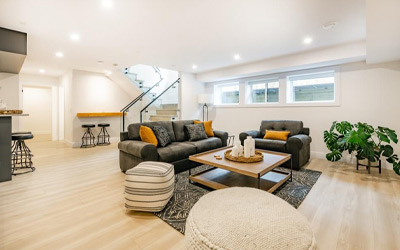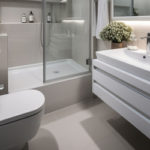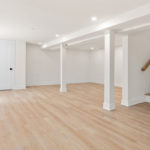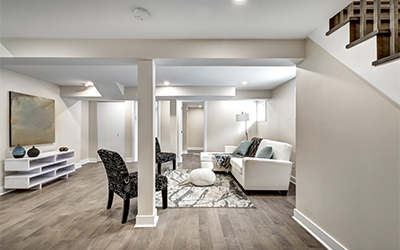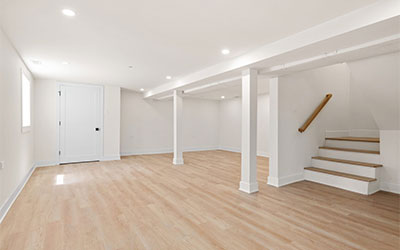Soundproofing Tips for Basement Apartments
Creating a comfortable and quiet living space in a basement apartment can be challenging, especially when managing noise from the main house or external sources. Soundproofing is essential not only for the comfort of the occupants but also to ensure privacy and maintain a peaceful environment. Here are some practical soundproofing tips for basement apartments, brought to you by Basements For Less.
Understand the Sources of Noise: Identify the primary noise sources before you start soundproofing. Familiar sources include footsteps from the floor above, plumbing, HVAC systems, and outdoor noise. Understanding where the noise comes from will help you effectively target your soundproofing efforts.
Seal Gaps and Cracks: Sealing gaps and cracks is one of the simplest and most effective ways to reduce noise. Use acoustic sealant or caulk around windows, doors, and any openings where sound can leak. Pay particular attention to areas around pipes, vents, and electrical outlets.
Install Soundproofing Insulation: Insulating your basement walls and ceiling can significantly reduce noise transmission. Use soundproofing insulation materials like mineral wool or fibreglass. These materials are designed to absorb sound and prevent it from passing through walls and ceilings.
Add a Drop Ceiling: A drop ceiling, also known as a suspended ceiling, can help dampen noise from the floor above. Install acoustic tiles that are specifically designed for soundproofing. These tiles can absorb sound and reduce the noise that filters into the basement apartment.
Use Soundproof Drywall: Consider installing soundproof drywall, which is denser and more effective at blocking sound than regular drywall. For even better results, use a technique called “double drywalling,” where you add a second layer of drywall with a damping compound like Green Glue in between.
Install a Soundproof Door: Basement doors often allow significant amounts of noise to pass through. Replace standard hollow-core doors with solid-core doors, which are much better at blocking sound. Adding a door sweep and weatherstripping around the door frame can also help seal out noise.
Carpet and Rugs: Hard surfaces like concrete and tile can reflect sound, worsening noise problems. Lay down thick carpeting or large area rugs to help absorb sound. Add an underlayment designed to soundproof underneath the carpet for extra noise reduction.
Use Acoustic Panels: Acoustic panels can be mounted on walls and ceilings to absorb sound. They come in various designs and colors, so you can pick some that match your interior design. They are particularly effective in reducing echo and reverberation within the room.
Soundproof Windows: Windows can be a significant source of noise leakage. If replacing windows is within your budget, consider installing double-pane or triple-pane windows designed for soundproofing. If not, use heavy curtains or window inserts to help block out noise.
White Noise Machines: While not a soundproofing technique per se, white noise machines can mask unwanted sounds, making them less noticeable. These gadgets provide a steady sound that can help block out distracting sounds and make the space calmer.
Soundproofing a basement apartment requires a combination of methods to effectively reduce noise from various sources. More insulation, gap sealing, and the use of specialist soundproofing materials can all help make a living area more comfortable and quiet. Remember, investing in soundproofing improves your quality of life and adds value to your property. For professional advice and assistance with your basement renovation project, contact Basements For Less today.


